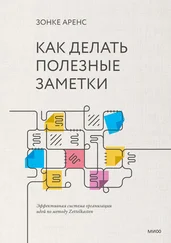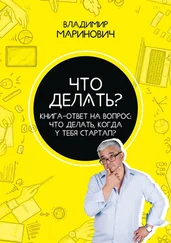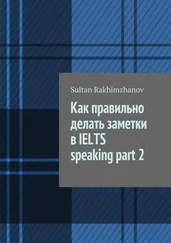117. Parkinson, Northcote C. 1957. Parkinson`s Law and Other Studies of Administration. Cambridge — Massachusetts: The River-side Press.
118. Peters, Sibylle, and Martin Jörg Schäfer. 2006. «Intellektuelle Anschauung — unmögliche Evidenz.» In Intellektuelle Anschauung. Figurationen von Evidenz zwischen Kunst und Wissen, edited by Sibylle Peters and Martin Jörg Schäfer, 9–21. Bielefeld.
119. Pham, Lien B., and Shelley E. Taylor. 1999. «From Thought to Action: Effects of Process-Versus Outcome-Based Mental Simulations on Performance.» Personality and Social Psychology Bulletin 25 (2): 250–260.
120. Quiller-Couch, Arthur. 2006. On the Art of Writing. Mineola, NY: Dover Publications.
121. Рэйти Дж., Хагерман Э. Зажги себя! Жизнь в движении.М.: Манн, Иванов и Фербер, 2017.
122. Ratey, John J. 2008. Spark: The Revolutionary New Science of Exercise and the Brain. New York: Little, Brown & Company.
123. Reeve, Johnmarshall. 2009. «Why Teachers Adopt a Controlling Motivating Style Toward Students and How They Can Be-come More Autonomy Supportive». Educational Psychologist 44 (3): 159–175.
124. Reeve, Johnmarshall, and Hyungshim Jang. 2006. «What Teachers Say and Do to Support Students’ Autonomy during a Learning Activity.» Journal of Educational Psychology 98 (1): 209–218.
125. Rheinberger, Hans-Jörg. 1997. Toward a History of Epistemic Things: Synthesizing Proteins in the Test Tube. Stanford, Calif: Stanford University Press.
126. Rickheit, Gert, and C. Sichelschmidt. 1999. «Mental Models: Some Answers, Some Questions, Some Suggestions». In Mental Models in Discourse Processing and Reasoning, edited by Gert Rickheit and Christopher Habel, 6–40. Cambridge, MA: Elsevier.
127. Rivard, Lé Onard P. 1994. «A Review of Writing to Learn in Science: Implications for Practice and Research.» Journal of Research in Science Teaching 31 (9): 969–983.
128. Robinson, Francis Pleasant. 1978. Effective Study. 6thed. New York: Harper & Row.
129. Rodin, Judith, and Ellen J. Langer. 1977. «Long-term effects of a control-relevant intervention with the institutionalized aged.» Journal of Personality and Social Psychology 35 (12): 897–902.
130. Roediger, Henry L., and Jeffrey D. Karpicke. 2006. «The Power of Testing Memory: Basic Research and Implications for Educational Practice.» Perspectives on Psychological Science 1 (3): 181–210.
131. Rosen, Christine. 2008. «The Myth of Multitasking.» The New Atlantic Spring (20): 105–110.
132. Rothenberg, Albert. 1971. «The Process of Janusian Thinking in Creativity.» Archives of General Psychiatry 24 (3): 195–205.
133. Rothenberg, Albert. 1996. «The Janusian Process in Scientific Creativity.» Creativity Research Journal 9 (2–3): 207–231.
134. Rothenberg, Albert. 2015. Flight from wonder: an investigation of scientific creativity. Oxford; New York: Oxford University Press.
135. Ryfe, David M., and Markus Kemmelmeier. 2011. «Quoting Practices, Path Dependency and the Birth of Modern Journalism.» Journalism Studies 12 (1): 10–26.
136. Sachs, Helmut. 2013. Remember Everything You Want and Manage the Rest: Improve Your Memory and Learning, Organize Your Brain, and Effectively Manage Your Knowledge. Amazon Digital Services.
137. Sainsbury, Robert. 1971. «The ‘Feature Positive Effect’ and Simultaneous Discrimination Learning.» Journal of Experimental Child Psychology 11 (3): 347–356.
138. Schacter, Daniel L. 2001. The Seven Sins of Memory: How the Mind Forgets and Remembers. Boston: Houghton Mifflin.
139. Schacter, Daniel L., Joan Y. Chiao, and Jason P. Mitchell. 2003. «The Seven Sins of Memory. Implications for Self». Annals of the New York Academy of Sciences 1001 (1): 226–239.
140. Schmeichel, Brandon J., Kathleen D. Vohs, and Roy F. Baumeister. 2003. «Intellectual Performance and Ego Depletion: Role of the Self in Logical Reasoning and Other Information Processing». Journal of Personality and Social Psychology 85 (1): 33–46.
141. Schmidt, Johannes F.K. 2013. «Der Nachlass Niklas Luhmanns — eine erste Sichtung: Zettelkasten und Manuskripte.» Soziale Systeme 19 (1): 167–183.
142. Schmidt, Johannes F.K. 2015. «Der Zettelkasten Niklas Luhmanns als Überraschungsgenerator.» In Serendipity: Vom Glück des Findens. Köln: Snoeck.
143. Schwartz, Barry. 2007. The Paradox of Choice. New York: HarperCollins.
144. Searle, John R. 1983. Intentionality, an Essay in the Philosophy of Mind. Cambridge; New York: Cambridge University Press.
145. Shapin, Steven. 1996. The Scientific Revolution. Chicago, IL: University of Chicago Press.
146. Singer, R., D. S. Downs, L. Bouchard, and D. de la Pena. 2001. «The Influence of a Process versus an Outcome Orientation on Tennis Performance and Knowledge.» Journal of Sport Behavior 24 (2): 213–222.
147. Stein, Barry S., Joan Littlefield, John D. Bransford, and Martin Persampieri. 1984. «Elaboration and Knowledge Acquisition.» Memory & Cognition 12 (5): 522–529.
148. Stokes, Patricia D. 2001. «Variability, Constraints, and Creativity: Shedding Light on Claude Monet.» American Psychologist 56 (4): 355–359.
149. Strack, Fritz, and Thomas Mussweiler. 1997. «Explaining the Enigmatic Anchoring Effect: Mechanisms of Selective Accessibility.» Journal of Personality and Social Psychology 73 (3): 437–446.
150. Sull, Donald and Eisenhardt, Kathleen M. 2015. Simple Rules: How to Thrive in a Complex World. Boston; New York: Houghton Mifflin Harcourt.
151. Swing, E. L., D. A. Gentile, C. A. Anderson, and D. A. Walsh. 2010. «Television and Video Game Exposure and the Development of Attention Problems.» PEDIATRICS 126 (2): 214–221.
152. Талеб Н. Н. Одураченные случайностью. О скрытой роли шанса в бизнесе и в жизни.М.: Манн, Иванов и Фербер, 2010.
153. Tangney, June P., Roy F. Baumeister, and Angie Luzio Boone. 2004. “High Self-Control Predicts Good Adjustment, Less Pathology, Better Grades, and Interpersonal Success”. Journal of Personality 72(2): 271–324.
154. Thaler, Richard H. 2015. Misbehaving: The Making of Behavior-al Economics. W. W. Norton & Company.
155. Trollope, Anthony. 2008. An Autobiography. Newcastle: CSP Classic Texts.
156. Vartanian, Oshin. 2009. «Variable Attention Facilitates Creative Problem Solving.» Psychology of Aesthetics, Creativity, and the Arts 3 (1): 57–59.
157. Wagner, Ullrich, Steffen Gais, Hilde Haider, Rolf Verleger, and Jan Born. 2004. «Sleep inspires insight.» Nature 427 (6972): 352–355.
158. Wamsley, Erin J., Matthew Tucker, Jessica D. Payne, Joseph A. Benavides, and Robert Stickgold. 2010. «Dreaming of a Learning Task Is Associated with Enhanced Sleep-Dependent Memory Consolidation.» Current Biology 20 (9): 850–855.
159. Wang, Zheng, and John M. Tchernev. 2012. «The ‘Myth’ of Media Multitasking: Reciprocal Dynamics of Media Multitasking, Personal Needs, and Gratifications.» Journal of Communication 62 (3): 493–513.
160. Whitehead, A. N. (1911): An Introduction to Mathematics. Cambridge: Cambridge University Press.
161. Wolfe, Christopher R., and M. Anne Britt. 2008. «The Locus of the Myside Bias in Written Argumentation». Thinking & Reasoning 14 (1): 1–27.
162. Zeigarnik, Bluma. 1927. «Über das Behalten erledigter und unerledigter Handlungen.» Psychologische Forschung 9: 1–85.
163. Zull, James E. 2002. The Art of Changing the Brain: Enriching the Practice of Teaching by Exploring the Biology of Learning. Sterling, Va: Stylus Publishing.
Подписывайтесь на полезные книжные письма со скидками и подарками: mif.to/letter-creative
Читать дальше
Конец ознакомительного отрывка
Купить книгу
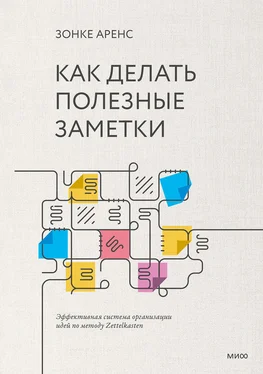
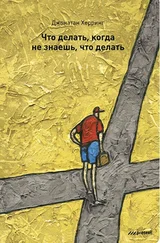

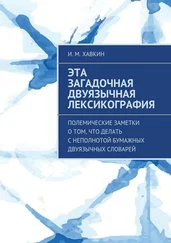

![Наталья Краснова - [НЕ]ВЕРНОСТЬ. Что делать, когда не знаешь, что делать](/books/452212/natalya-krasnova-ne-vernost-chto-delat-kogda-n-thumb.webp)
